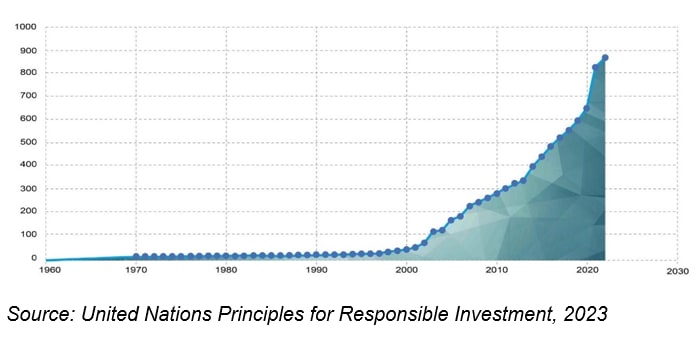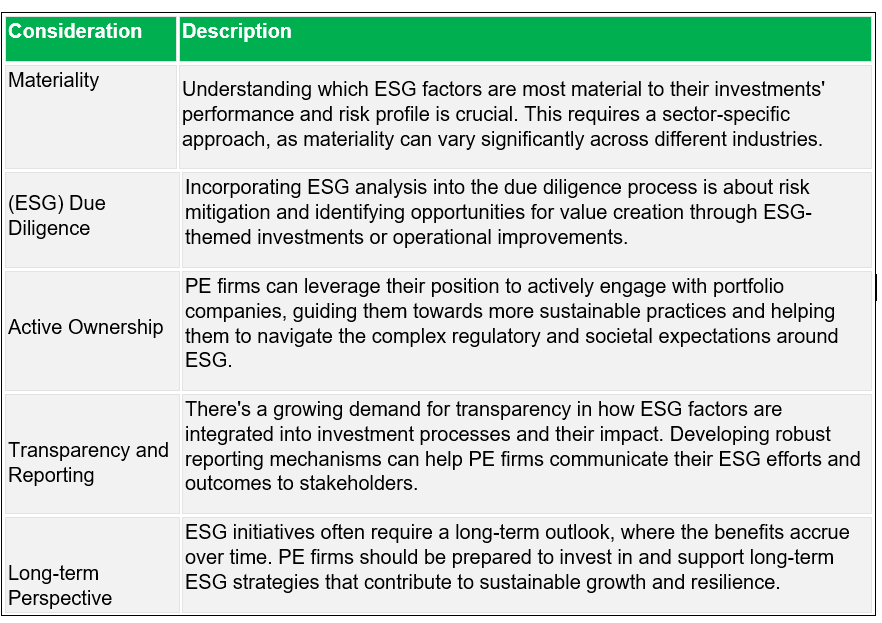ESG Finance is not just another buzzword in the financial ecosystem; it represents a paradigm shift towards sustainable investing. It is also about making investment decisions that promise financial returns and consider environmental sustainability, social responsibility, and governance integrity. ESG Finance embeds these non-financial factors into the heart of financial analysis, recognizing that they can significantly impact an investment's risk and return profile.
This article is written by Mourad Seghir ([email protected]) and Iman Zalinyan ([email protected]), who are part of RSM Netherlands Business Consulting services with a focus on Sustainability and Supply Chain management consulting.
Recent Developments in the ESG Arena
Recently, there has been a noticeable surge in green bonds and sustainable loans, with companies and governments issuing debt to fund environmentally friendly projects. Moreover, the COVID-19 pandemic has accelerated the focus on social factors, with investors paying closer attention to how companies manage employee welfare and supply chain resilience. The latest regulatory developments, especially in the European Union with the Regulation for ESG Ratings and SFDR, push for greater transparency and standardization in how ESG factors are reported and integrated into investment decisions. But not only in Europe is the amount of ESG developments are growing, it’s a worldwide phenomenon.

Today's investors are showing shifting behaviours in investing, with many looking beyond traditional financial metrics to how a company aligns with their ethical values and contributes to a sustainable future. They are seeking investments that not only provide a good return but also have a positive impact on the world. This includes companies that prioritize renewable energy, maintain high labour standards, and exhibit strong governance through transparent and ethical business practices. Investors are also demanding more ESG data and clearer sustainability reporting, pushing for investments that can demonstrate a tangible impact alongside financial performance.
The Link between ESG and Financial Performance
The link between ESG factors and financial performance is multifaceted, encompassing aspects such as societal impact, environmental stewardship, transparency in operations, strategic investment decisions, cost management, regulatory compliance, coherent ESG strategies, and the exploration of new revenue opportunities.
Companies that excel in these areas tend to outperform their peers by mitigating risks, capitalizing on market trends, enhancing stakeholder trust, and securing competitive advantages. This holistic approach to integrating ESG principles not only addresses the pressing challenges of sustainability and social responsibility but also aligns with sound financial strategies to drive long-term value creation and resilience in an increasingly complex global market.
Private Equity (PE) sits at an interesting crossroads with ESG Finance. PE firms typically have more control over their portfolio companies compared to public market investors, providing a unique opportunity to influence and drive substantial ESG initiatives. This influence can significantly enhance operational efficiencies, brand reputation, and compliance with regulatory standards, all of which can contribute to value creation. PE firms are increasingly integrating ESG criteria into their due diligence processes to identify potential risks and opportunities that could affect their investments' long-term sustainability and profitability.
As PE firms navigate the ESG landscape, there are several key considerations to keep in mind:

Forward thinking
As the momentum behind ESG Finance continues to build, the relationship between ESG considerations and Private Equity becomes increasingly symbiotic. By embedding ESG factors into their investment ethos, PE firms can enhance their financial performance and contribute to the broader societal shift towards sustainability and responsible business practices. The journey requires a nuanced understanding of ESG issues, a commitment to transparency, and a willingness to adopt a long-term perspective on value creation. In doing so, Private Equity can play a pivotal role in shaping a more sustainable and equitable future.
RSM is Thought Leader in the field of Supply Chain and Sustainability consulting. We offer frequent insights through training and sharing of thought leadership that is based on a detailed knowledge of regulatory obligations and practical applications in working with our customers. If you want to know more, please reach out to one of our consultants.

